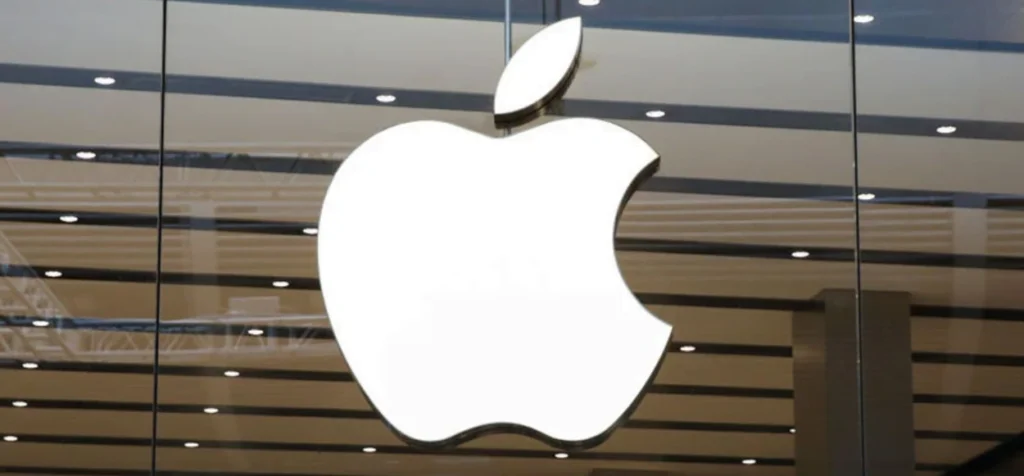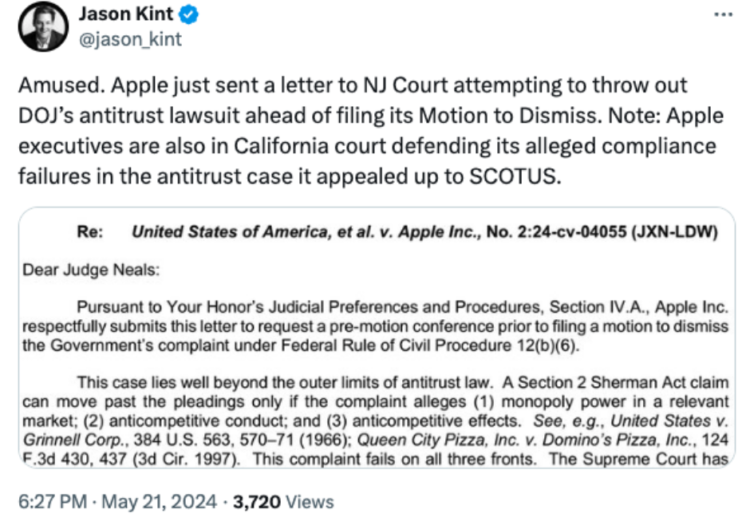In a letter announcing its intention to file an antitrust lawsuit in the United States, Apple asserts that it “faces fierce competition” and is not involved in a monopoly in the technology region.

Apple’s attorneys denied U.S. allegations of anticompetitive behaviour in a letter dated May 21 to New Jersey federal judge Julien Neals, requesting a conference to discuss the dismissal motion.
The letter denied the existence of design decisions that “lock in” users to iPhones and excluded third-party access to the platform and other anti-competitive practices.
The company stated that Apple “makes unilateral decisions regarding the terms and conditions under which third parties are permitted access to Apple’s proprietary platform” as part of its purported anticompetitive behaviour.
In March, the Department of Justice filed an antitrust lawsuit against Apple, alleging that the company’s smartphone monopoly enabled it, among other things, to restrict the functions and features of digital wallets and payments and that its App Store regulations stifled competition.
Due to a 30% surcharge colloquially known as the “Apple Tax,” the technology company’s fiat-only payments system has long prohibited using cryptocurrencies in iOS applications or rendered it unprofitable for cryptocurrencies to offer in-app purchases.
The firm argued that Apple has chosen to provide users with a curated, secure, and dependable experience, as opposed to the more open platforms offered by its competitors.

Apple asserted that the government neglected to “properly define the relevant market or establish Apple’s monopoly power in it” and that its purportedly anticompetitive behaviour “took place in other markets,” including its digital wallet policies.
“Each of these products has its distinct market with its competitive dynamics; the government’s inability to identify the appropriate market for them would be catastrophic.”
The primary technology company stated that the United States’ arguments are without merit because the Supreme Court “has made it clear that a company’s dealing terms with third parties do not constitute exclusionary conduct.”
Apple added that it “faces stiff competition” from Google and Samsung in response to the DOJ’s assertion that it controls the smartphone market. The former leads global smartphone sales and has the most-used mobile operating system.
The U.S., it claimed, failed to establish “a factual link” to demonstrate that Apple’s “design decisions” corner smartphone consumers.
“Anyone dissatisfied with Apple’s limitations has every reason to switch to rival platforms that ostensibly lack those constraints,” the statement continued.
An Apple spokesperson told Cointelegraph shortly after the DOJ’s March filing that the lawsuit could “set a dangerous precedent” and potentially grant the government “a heavy hand in designing people’s technology.”
